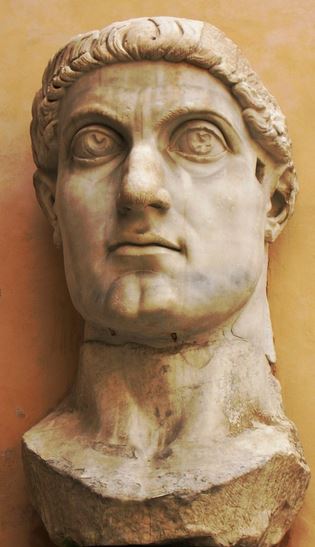I often come across information that I find to be very educational; information that I feel everyone needs to hear because it dispels the religious teachings that religion propagates regarding women and their true positions in the early church and society. Consistently, as I find this information, I quote it on my blog and expound on it. My blog is full of articles that provide evidence of changes and corruptions in translation that have leaned attitudes of men against women and female leadership. These changes have been purposely done to write women out of autonomy and equality and point them into positions of servitude to men. These attitudes have had an opportunity to saturate societies the world over for centuries and, set a foundation for abuse of women everywhere. These abuses have never been more prevalent than in today’s culture – a rape culture – where even the smallest female child has no safety from the abuse. For an example of this mentality and culture, click any of the following links:
More rape in India as Delhi reports 4 year old assaulted
Saudi preacher gets fine and short jail term for raping and killing 5 year old daughter
Sacrificing Our Daughters: On the Psychology of Islamic Rape-Gangs
Throughout history, religion has, through translation, forced women into specific roles within the church and even society. This is mainly because of men dominating religion and re-writing scripture to lean it toward their biases and preconceptions, and then, using their corruptions as a means to force issues and mindsets regarding women. All manuscripts written regarding women disciples and their roles in the church have been forced out of existence. The only remnants we have through discovery are very small. Because of religion’s biases, women have lost their equality, honor and dignity; leading to abuses in the home and society. It has also led to secular laws in some places that prevent women from ever shedding the shackles of abuse and regaining their honor and dignity back. We often hear of honor killings where men’s “honor” is emphasized, but what these abusive societies fail to consider is the “honor” and “dignity” of women; many of which, are accused falsely and, some are even killed without proper recourse to the rapist and/or murderer. Those that try to escape the abuse will find themselves in jail or killed. And yet, others will be mutilated or tortured by these same religious mindsets. For examples of these mindsets, click any of the following links:
Norwegian Woman: I was raped in Dubai, now I face prison sentence.
Newlywed Afghan beheaded for her refusal to become prostitute
Afghan women imprisoned for ‘moral’ crimes
Female genital mutilation on the rise in the United States
Muslim gang-rapes across Europe under reported by Press
Saudi cleric says ‘baby burkas’ would prevent child molestation
Rape is Rape: How the Culture of Shaming, Stigma, and Victim-Blaming is Hurting Us
The information that I would like to share today comes from the book, Lost Christianities, by Bart D. Erhman. I believe that Erhman brings to the forefront in an exceptional way, the very attitudes of the early church leaders and gives plausible insights as to why many of the manuscripts of the early centuries disappeared that were written or handed down regarding women and their roles in the church. I sincerely hope this information is helpful and educational for the reader as it was for me.
************
Lost Christianities by Bart D. Erhman
Women in Paul and the Apocryphal Acts
Scholars of Paul have debated his view of women in the church. . .a number of scholars have concluded that Paul’s instruction for women to be silent in 1 Corinthians may not be from Paul, just as the letter to Timothy is not from Paul.
What, then, was Paul’s attitude toward women in the church? In his undisputed letters, Paul indicates that “in Christ there is no male or female” (Gal. 3:28), that is, that men and women were completely equal in Christ. Moreover, as scholars of the late twentieth century began to emphasize, churches connected in some way with Paul appear to have had women leaders. Just in the greetings to the church of Rome, for example, Paul mentions several women who worked with him as Christian missionaries (Rom. 16:3, 6, 12), another who was the patron of the church meeting in her home (16:3), one other, a woman named Phoebe, who was a deacon in the church of Cenchrea (16:1), and most striking of all, yet another woman, Junia, whom Paul describes as “foremost among the apostles” (16:7).
Paul, and his churches, may have been more open to women and their leadership roles than people have traditionally thought and far more than Tertullian thought. No wonder that members of Paul’s churches (primarily women members?) told stories about the adventures of his female companions like Thecla. And no wonder that men in the churches eventually decided to clamp down, forging documents in Paul’s name condemning the practice of having women speak in church (1 Timothy), inserting passages into Paul’s authentic letters urging women to be silent (1 Cor.14:34-35), calling church councils to condemn an elder of a Pauline church who had dared collect narratives of Paul’s woman disciple Thecla and pass them off as authentically Pauline.
Some scholars have wondered whether the stories of Thecla were causing problems in the Pauline churches years before this accused forger did his work, wondered whether the existence of such stories is what led the author of 1 Timothy, whoever he was, to compose his letter in Paul’s name. It is indeed striking that the letter predicts that in “later times” there will be people who condemn the practice of marriage (4:1-4): “Paul” himself speaks against the practice in the Acts of Thecla. Moreover, the canonical letter of 1 Timothy explicitly urges its readers not to listen to “the profane tales of old women” and condemns younger women who are “idlers, going about from door to door . . .as gossips and busybodies, saying things they should not” (4:8, 5:13). The younger women who have lost husbands are to “marry, bear children, rule their households, and give the enemy no grounds to reproach us” (5:14).
This is certainly not the view advanced in the Acts of Thecla, which urges women not to marry, not to bear children, and to leave their households. For THAT “Paul,” the Paul of the Acts of Thecla, “blessed are the continent, for God shall speak with them” and “blessed are the bodies of the virgins, for they will be well pleasing to God and will not lose the reward of their chastity.” Possibly the stories of Thecla and others like them are what motivated the author of 1 Timothy to write his letter in Paul’s name. – Bart D. Erhman, Lost Christianities, pages 37-39.
************
Many of the stories that had to do with women disciples obviously empowered women to be autonomous; something men did not want, have never wanted. Control is what men desire to have. If they cannot get it in society then they will get it through scripture as shown above. Forgeries done in the names of the Apostles were a weapon used to stop women from being equal; from being leaders. According to Erhman, “ancient Christianity stressed the equality of women in Christ.”
************
Lost Christianities by Bart D. Erhman, page 46
For apocalypticists like Jesus, Paul, and their immediate followers, this age and the social conventions it embraces are passing away. Jesus was reputed to have women followers who associated with him in public, ate with him, touched him, supported him. And no wonder, either, that Paul had women leaders in his churches and insisted that in Christ “there is not male and female.” . . .
Even so, one can see how the message of Jesus and his followers would be attractive to women. In the coming kingdom there would be no oppression or injustice or inequality. Women and men would be equal. Some of Jesus’ followers started implementing the ideals of that kingdom in the present, working to alleviate poverty and suffering, working for justice, striving for equality. This implementation of the ideals of the kingdom was clearly evident in the early churches, where slave and free, Greek and barbarian, man and woman were all given an equal standing.
That is why the tales of Thecla and other ascetic women were not an anomaly in the early Christian movement. They were a significant statement of an important stream of early Christianity. Here were women who refused to participate in the constraints of patriarchal society. They remained unmarried, not under the control of a husband. And they were travelers, not staying at home under the authority of a paterfamilias, a father, a male head of household. The ascetic life went hand in hand with freedom to decide what to do with their own bodies, how to treat them, how to live in them; it went hand in hand with freedom of movement, not restricted to the household and household chores and the care and education of children, which occupied most women’s time.
Thus the asceticism advocated in the texts of the Apocryphal Acts both manifested and helped bring about a kind of liberation for Christian women. It is not surprise that women feature so prominently in the tales and no surprise that some scholars suspect that women were principally responsible for telling the tales, spreading the tales, embracing the tales, making the tales their own. Nor is it any surprise that other Christians hated the tales, outlawed the tales, burned the tales. It was these other Christians who, at the end of the day, proved the more powerful, for it was through the machinations of these other Christians—powerful proto-orthodox leaders and writers like Tertullian—that this stream of early Christianity was lost, only to be rediscovered in modern times. – Bart D. Erhman, Lost Christianities, page 46.
************
It is very difficult for religious people to understand and accept that religion has worked very hard and deceptively to subjugate and control women through corruptions in translation and through corruption of interpretation. It is very difficult for many religious people to accept the fact that “there is neither male nor female in Christ.” Women of today must have their honor, dignity and equality restored. Without equality, they will never be treated with honor and dignity and, they will never be protected from abuse. Any time there is inequality, there will be abuse of those slighted by it. Women have borne the brunt of abuse for centuries and, even today, are not getting the protections they deserve from the abuses. Instead, society has taken a position of blaming victims of abuse instead of helping them. Let’s work to give women their honor, dignity and equality back and protect them and their children from abuses hidden under the guise of “religion.” In order to do so, we must start with unmasking the lies that religion propagates and hides that foster this abuse toward women. That’s what my blog does.


